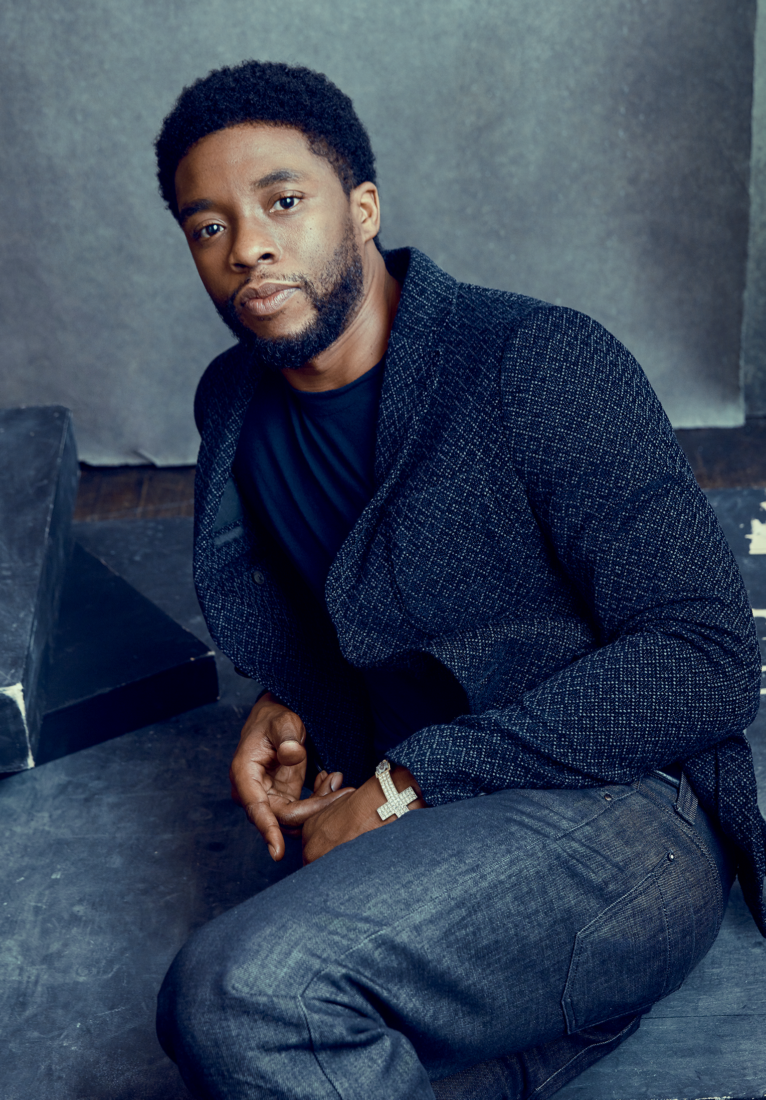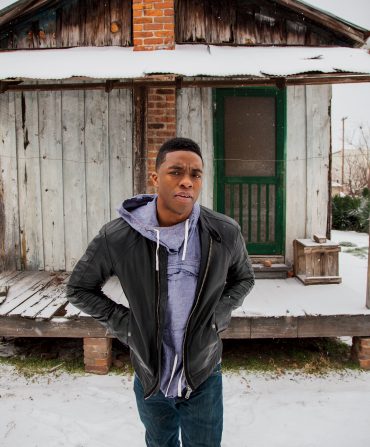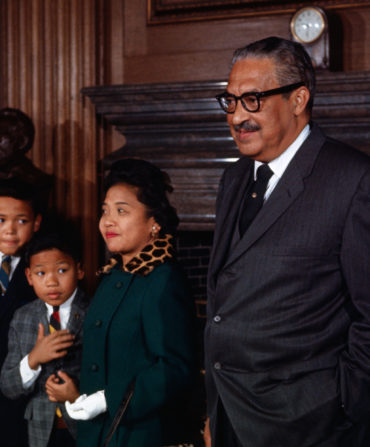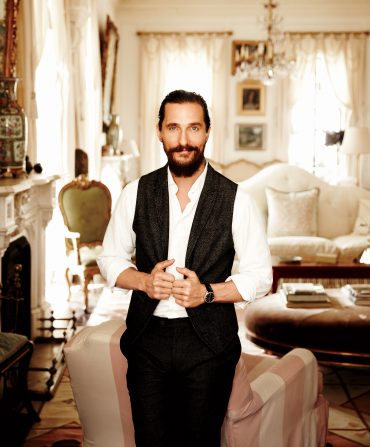Like the larger-than-life men he has played in the prestige pictures that have defined his acting career, Chadwick Boseman never takes the easy route. “I’m not afraid to work,” he says, crediting his South Carolina upbringing with teaching him the value of giving his all, and giving all you can to others. To date, the forty-year-old Boseman, also a director and playwright, has done just that in his acclaimed portrayals of Jackie Robinson, James Brown, and Marvel’s first black superhero, T’Challa (the Black Panther)—legends all. In October, he adds no less than the civil rights icon and U.S. Supreme Court justice Thurgood Marshall to the list in Marshall, which follows the young lawyer from Baltimore as he defends a black chauffeur against his wealthy socialite employer. Another role of a lifetime in what Boseman agrees is the time of his life.
Your résumé is heavy with indelible historical figures. How do you process the weight of those roles?
I don’t know, to be honest. [Laughs.] I try to look at every role the same way, regardless of whether the character is real or the character is a fantasy. I always start from myself, because you have to know yourself first.
There’s a line early in Marshall where you as Thurgood ask if you can speak, and the judge says no. He silences you. That’s the genius of Thurgood Marshall. He wasn’t fighting cases on a fair playing field. He’s dealing with judges who are the grand wizards of the Ku Klux Klan. He’s in towns where he could literally get hanged.
You grew up in a small Southern town: Anderson, South Carolina…
I was raised in a sort of village. I have a huge family, and I think there is strength in that. It helped me to deal with some of the complications of living in the South because I always felt like I belonged, no matter what.
I was going to ask if you label yourself a Southerner.
Yeah, always. [Laughs.] The Southern part of me is always going to come out. I think that was one of the things that allowed me to access James Brown. The role seemed so far away from my wheelhouse, until I put it into the perspective of he’s a Southerner. It doesn’t matter where you live, or where you’ve been, there’s certain stuff you keep.
Such as?
There’s a sense of the earth, and of being connected to people from that same earth. I think of my uncle David. He had a farm, and this sense of I grew this in my fields, I’ve got greens for you, strawberries, green beans, a whole bushel. I understand what that is. And I’m not afraid to sweat, I’m not afraid to get my hands dirty. That transfers to what I do now. It’s the same principles of sowing and reaping and putting the work
in and getting something back from it.
What did you want to be when you were a child?
I thought I would draw or paint or be an architect. I was always drawing portraits. My mom put me in art classes in the summer.
You’re also a writer.
When I started down this creative path, my point of view was as a director and a writer because I understood painting pictures with words and framing.
Were you an avid reader as a kid?
It was a big thing for me to read black writers. Fences, by August Wilson. James Baldwin’s Amen Corner. The Fire Next Time. The Autobiography of Malcolm X, of course.
Where do you feel most at home?
It’s so weird you ask that because we just filmed Black Panther in Atlanta, and it was so good to be back in the area. But there’s an artistic spark that you get when you’re in New York that’s hard to emulate in any other place. I would say if I had to choose right now, weighing all the factors, I would choose the South. I’m just always going to feel at home there.
Is it the food that puts it over the top?
Well, that’s complicated because all this food I love, grew up with, I can’t eat it because I’ve got to be in front of the camera, looking a certain way.
You can’t be eating biscuits and gravy and be working that Black Panther suit.
Nah, nah. I mean, I could go home and have a little every now and then, but I have to wait three weeks before I do it again.
The Black Panther is the first black superhero in American comics. So, another role with outsize expectations and tons of pressure.
Well, yeah. I definitely have felt it. [Laughs.] Just to see how people respond to every little thing that’s been put out. It’s even more than I thought. You feel the weight on set. I think everyone across the board knows we have to do this justice.
When Black Panther debuts next February, it could have an impact like Wonder Woman, showing long-neglected audiences something that represents and speaks directly to them.
Right.
You’re probably going to have a whole ocean of love washing over you. Get ready.
I hope so. I would love to have an ocean of love right now. [Laughs.] That said, the number-one rule of acting is: Do not seek approval from the audience. People don’t realize that. You can’t do stuff to get applause. You have to live in the truth.
Allison Glock has been a magazine journalist and author for twenty-plus years. Her writing has appeared in the New York Times, the New York Times Magazine, Esquire, Rolling Stone, Men’s Journal, Marie Claire, GQ, the New Yorker, ESPN the Magazine, and many other publications.








